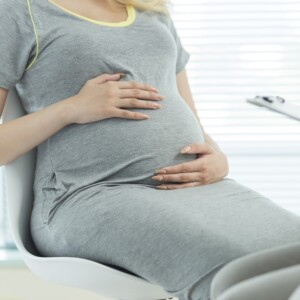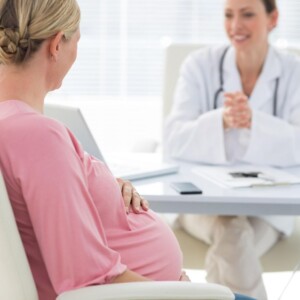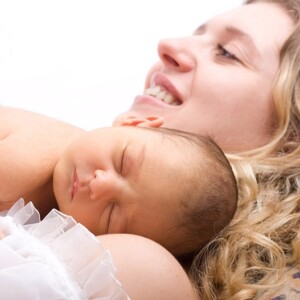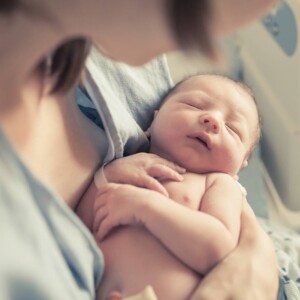




Since 2013 she has been Head of the Department of Obstetrics and Gynecology at the Children’s Hospital Sant Joan de Deo, Barcelona and Coordinator of General Obstetrics at BCNatal (Center for Maternal, Fetal and Neonatal Medicine Barcelona, Children’s Hospital Sant Joan de Deo, Barcelona).
Since 2018, coordinator of the Maternal and Fetal Medicine Section of the Catalan Society of Obstetrics and Gynecology (SCOG).
Teaching activity:
Education:
International experience:
Medical Director of the Assisted Reproduction Team at Quirónsalud Barcelona Hospital.
Dr. Ramón Aurell is a renowned gynaecologist with expertise in Assisted Reproduction and Family Medicine. With extensive training in London as a reproductive medicine researcher at Hammersmith Hospital.
Dr. Ramón Aurell is a member of:
During his career, he has written over 250 publications.
Professor of Obstetrics and Gynecology at the University of Seville, Dr. Guillermo Antiñolo Gil was a pioneer in achieving the birth of disease-free children in Spain.
Graduated in Medicine and Surgery from the University of Navarra and a doctorate in Medicine from the University of Seville, this specialist in Obstetrics and Gynecology is director of the Genetics Plan of Andalusia and of the Clinical Management Unit of Maternal-Fetal Medicine, Genetics and Reproduction of the Hospital Virgen del Rocío University of Seville, a unit that in 2018 received the European Citizen Award granted each year by the European Parliament to exceptional people and organizations that fight for European values.
That same year, Dr. Guillermo Antiñolo Gil, who is the author of more than 180 scientific articles in specialized publications, was distinguished as the Favorite Son of Andalusia.
Graduate (1990) and Doctor (1997) in Medicine at the University of Navarra. He specialized in Obstetrics and Gynecology at the Clínica Universidad de Navarra (1994). He has completed training stays in foreign centers such as the Centre Europeen de Formation Practique a la Chirurgie Endoscopique, Perigueux, France and the Division of Gynecologic Oncology, University of Southern California, Los Angeles, U.S.A.
He is a member of the editorial board of several scientific journals (Ultrasound in Obstetrics and Gynecology, Ian Donald School Journal of Ultrasound in obstetrics and Gynecology, World Journal of Radiology) and a reviewer for the journals of greatest impact in the specialty such as Human Reproduction, Fertility and Sterility, American Journal of Obstetrics ang Gynecology, Gynecologic Oncology, Landet Oncology, International Journal of Gynaecological Cancer, Ultrasound in Obstetrics and Gynecology, Maturitas, Gynecologic Endocrinology and Journal of Assisted Reproduction and Genetics, among others.


















Check the cost of treatment and get 20 000 € from international foundation
Get financial help up to 20 000 € for your child treatment
Medical consultant
Turkish oncologist will provide an individual chemotherapy program.
Israeli oncologist will provide an individual chemotherapy program.
Spanish oncologist will provide an individual chemotherapy program.
German oncologist will prepare an individual chemotherapy program.
Polish oncologist will prepare an individual chemotherapy program.
Italian oncologist will prepare an individual chemotherapy program.
Turkish radiologist will prepare a personalized radiation therapy program
Israeli radiologist will draw up an individual radiation therapy program.
German radiologist will draw up an individual radiation therapy program.
Spanish radiologist will draw up an individual radiation therapy program.
Polish radiologist will prepare an individual radiation therapy program.
Italian radiologist will draw up an individual radiation therapy program.
Turkish plastic surgeon will make an individual operation program.
German plastic surgeon will make an individual operation program.
Israeli plastic surgeon will make an individual operation program.
Italian plastic surgeon will make an individual operation program.
Polish plastic surgeon will make an individual operation program.
Spanish plastic surgeon will make an individual operation program.
Turkish orthopedic surgeon will make an individual operation program.
Israeli orthopedic surgeon will make an individual operation program.
German orthopedic surgeon will make an individual operation program.
Italian orthopedic surgeon will make an individual operation program.
Lithuanian orthopedic surgeon will make an individual operation program.
Polish orthopedic surgeon will make an individual operation program.
Ukrainian orthopedic surgeon will make an individual operation program.
Spanish orthopedic surgeon will make an individual operation program.
Turkish neurosurgeon will study the medical situation and give recommendations for treatment.
Israeli neurosurgeon will study the medical situation and give recommendations for treatment.
German neurosurgeon will study the medical situation and give recommendations for treatment.
Italian neurosurgeon will study the medical situation and give recommendations for treatment.
Lithuanian neurosurgeon will study the medical situation and give recommendations for treatment.
Spanish neurosurgeon will study the medical situation and give recommendations for treatment.
Ukrainian neurosurgeon will study the medical situation and give recommendations for treatment.
Turksih doctor will answer your questions
Israeli doctor will answer your questions
German doctor will answer your questions
Italian doctor will answer your questions
Polish doctor will answer your questions
Ukrainian doctor will answer your questions
Spanish doctor will answer your questions
Israeli orthopedic surgeon prepare an individual surgical plan and recomendations
Turkish orthopedic surgeon prepare an individual surgical plan and recomendations
German orthopedic surgeon prepare an individual surgical plan and recomendations
Italian orthopedic surgeon prepare an individual surgical plan and recomendations
Lithuanian orthopedic surgeon prepare an individual surgical plan and recomendations
Polish orthopedic surgeon prepare an individual surgical plan and recomendations
Spanish orthopedic surgeon prepare an individual surgical plan and recomendations
Lithuanian doctor will answer your questions
After examining your situation, doctor will make an individual price offer.
Doctor-consultant will answer all your questions about the cost of treatment, the choice of a doctor and fully organize treatment abroad.

we will contact you within 15 minutes
According to the WHO rankings, independent expert councils and the latest study by NEWSWEEK magazine, Spain’s healthcare system is recognized as one of the best and ranks third in the world. People come here for the diagnosis and treatment of severe pathologies, as well as for pregnancy and childbirth.
According to various sources, Spain has the lowest infant mortality rate (0.3% per 1,000 newborns), confirming the high medical care level. In Spanish clinics, all conditions have been created for the safest and most comfortable birth of a baby. Therefore, in recent years, childbirth in Spain has become a popular medical tourism destination for Ukrainians and residents of Central Asia.
The birth of a child in Spain is chosen not only by women from Eastern Europe and Central Asia but also from Western European countries, where medicine is traditionally strong.
 The main advantages of giving birth in Spain for foreigners are:
The main advantages of giving birth in Spain for foreigners are:
An additional plus is the mild Mediterranean climate, which can improve a woman’s well-being in the last months of pregnancy and after the birth of a baby.
Perhaps the only disadvantage of giving birth in Spain for foreigners is the difficulty in communication if the mother and her relatives do not know Spanish. In this case, you need to find an interpreter in advance who will accompany the expectant mother for consultations with the doctor and childbirth.
Many foreign patients come to Spain for childbirth to obtain the child’s citizenship. Local law provides this possibility.
A child who was born here really has the right to citizenship. In Spain, there are 3 options for admission to citizenship:
At the birth of a child, a certificate is issued to him, which will need to be exchanged for a “Family Book”. This is an analog of the book of registration of acts of civil status. In Spain, this is an individual document of a person, in which information is entered about his birth, marriage and dissolution, the birth of children, and death.
If, in the future the option of obtaining Spanish citizenship by the child is considered, this document must be issued.
Important: It will not be possible for parents to obtain Spanish citizenship at the birth of a child, as local law does not provide for this.
 According to the opinions of women who have already become mothers in Spain, the ideal option is to spend the entire pregnancy in the country. Thus, the expectant mother will be able to choose a doctor, get to know him, pass all the prescribed tests, and have an ultrasound scan under his guidance. There will be no need to translate medical documents into Spanish.
According to the opinions of women who have already become mothers in Spain, the ideal option is to spend the entire pregnancy in the country. Thus, the expectant mother will be able to choose a doctor, get to know him, pass all the prescribed tests, and have an ultrasound scan under his guidance. There will be no need to translate medical documents into Spanish.
Also, pregnancy in Spain can be carried out by a midwife. This is possible if the expectant mother monitors pregnancy in a state clinic. If additional examinations are needed, the midwife issues referrals.
According to patients, they do not prescribe many tests during pregnancy in Spain.
In the absence of complications, a woman visits a doctor or midwife once a month and undergoes an ultrasound scan.
However, there are situations when a woman does not have the opportunity to live permanently in Spain throughout her pregnancy.
For such cases, experts have developed recommendations:
Important: not all airlines take on board women at the 8th month of pregnancy for fear of premature birth. An exception may be written consent from the doctor. Therefore, those who plan to fly in the last weeks should remember this or choose ground transport for travel.
In Spain, as in many European countries, specialized maternity hospitals are not provided. Childbirth takes place in the maternity wards of private and public hospitals.
 How is childbirth in Spanish clinics?
How is childbirth in Spanish clinics?
The woman is offered to choose the position in which she is comfortable to give birth.
The delivery rooms are equipped with everything necessary for childbirth: beds with an adjustable back, a rope for vertical childbirth, a jacuzzi and fitballs to relieve pain during contractions.
In Spain, epidural anesthesia is widely used during childbirth. The doctor uses a small dose to anesthetize the lower body, which is absolutely safe for the baby and the mother. For cesarean section, epidural anesthesia is also used predominantly; general anesthesia is extremely rare.
During childbirth in Spain, foreigners are allowed the presence of a person close to the woman. Also, for a fee, accommodation is available for an accompanying person with mom and baby.
After birth
After birth, the baby is surrounded by the care and attention of the medical staff. According to reviews of childbirth in Spain, midwives and doctors come on demand. A neonatologist examines a child.
Mom is given advice on breastfeeding, swaddling and navel care. After a natural birth, a mother with a newborn is discharged for 2-3 days, after a cesarean section – a week later.
Spanish doctors agree in one opinion: do not immediately rush to return to your homeland, they recommend staying for a month. During this time, the mother will have access to the help of a pediatrician. The mild Mediterranean climate helps to get stronger. In addition, there will be time to issue documents for the child at the Consulate.
 The average price for a natural birth in Spain is $2500-5000, and for a cesarean section, it is $7000-10000. The cost of childbirth in Spain may vary depending on the chosen city and clinic, the use of anesthesia, additional days spent in the hospital, the accommodation of the attendant, as well as the type of room. Translation services are paid separately.
The average price for a natural birth in Spain is $2500-5000, and for a cesarean section, it is $7000-10000. The cost of childbirth in Spain may vary depending on the chosen city and clinic, the use of anesthesia, additional days spent in the hospital, the accommodation of the attendant, as well as the type of room. Translation services are paid separately.
In private hospitals, the cost is higher due to the increased level of comfort. For example, food for a woman in labor is prepared in a restaurant, and the ward resembles a room in a prestigious hotel. Giving birth in Barcelona and Madrid is traditionally more expensive than giving birth in Alicante or Valencia.
Some hospitals offer package deals that include the following services:
For the birth of a child in Spain, parents pay 3-4 times less than in hospitals in Switzerland or the United States.
For Ukrainians, free childbirth in Spain is available, subject to legal status. For example, for those who have a residence permit. In this case, the woman in labor will be delivered in a state clinic.
You need to know that everyone who is on a tourist visa in Spain can be provided with free assistance only in emergency cases. Such cases include premature birth in Spain for Ukrainians.
An important nuance that concerns childbirth in Spain for Ukrainians with a residence permit: a child can apply for Spanish citizenship after 1 year.
According to many who have had a chance to give birth in Spain, purchasing health insurance in advance is advisable. This can be done by both residents and non-residents of the country. The medical policy covers all or part of the costs associated with childbirth. To do this, you need to contact one of the private insurance companies.
Important: not all insurances cover pregnancy and childbirth, so you need to take this factor into account.
Some of the health insurances that cover the management of pregnancy and childbirth, as well as emergency medical care:
All medical documents must be translated into Spanish in advance to visit the insurance company.
There are many hospitals available in Spain that are equipped with modern equipment. They will provide high-quality medical care to mothers and babies. Barcelona is the most popular city in Spain where expectant mothers come to give birth.
More than 1,200 births take place in Barcelona hospitals every year. It is important that cesarean section is resorted to in exceptional cases – this is no more than 25%.
Childbirth in Spain: TOP-5 clinics:
 Teknon Medical Center in Barcelona. This is one of the most prestigious clinics. Here they provide obstetric quality services and thorough care for both newborns and mothers. The pediatric intensive care unit is equipped with modern equipment for neonatal intensive care, including neonatal surgery. The cost is $2500-5100.
Teknon Medical Center in Barcelona. This is one of the most prestigious clinics. Here they provide obstetric quality services and thorough care for both newborns and mothers. The pediatric intensive care unit is equipped with modern equipment for neonatal intensive care, including neonatal surgery. The cost is $2500-5100.The choice of a medical center should be taken carefully: read honest reviews, and pay attention to the availability of accreditation. This guarantees that the treatment in the clinic complies with international protocols and is safe for the patient. More detailed information about all Spanish hospitals can be obtained from Experts Medical coordinators.
To quickly and easily organize a trip to Spain for childbirth, you need to leave a request on the Experts Medical website. The coordinating doctor will contact you and provide free information about the features of pregnancy, childbirth and the conditions of stay in different Spanish clinics, as well as package offers.
Experts Medical coordinators can book tickets, hotel rooms, provide transfer and escort. With the support of Experts Medical, a trip to Spain for childbirth will be as comfortable and safe as possible.